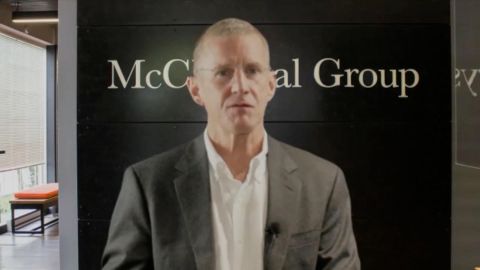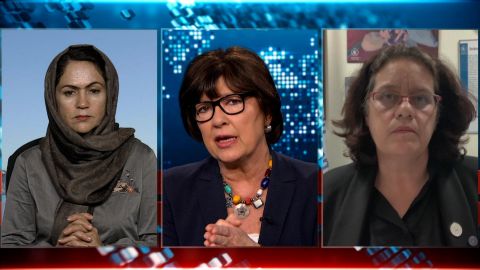Read Transcript EXPAND
MARY-ELLEN MCGROARTY, WORLD FOOD PROGRAM:The situation in Afghanistan is accelerating and magnifying at an incredible pace. We already had a dire humanitarian situation before all this. And now, with the economic meltdown that’s occurring, in addition to the drought situation, the legacy of COVID and conflict, people are just being pushed to the brink of survival. Jobs are being lost. Food prices are going up. Fuel prices are going up. And people just can’t feed themselves.
CHRISTIANE AMANPOUR: Well, Jan Egeland, as you know, who is the secretary-general of one of the biggest organizations, the Norwegian Refugee Council, has said: “The desperation is everywhere. Mothers I sat down with in makeshift tents told me their families have no income and no reserves, and they’re worried that their children will starve and freeze to death this winter.” So again, Mary-Ellen, are you seeing any way that aid could come in? When you see what the G20 has pledged, does that make you feel good, or are there huge administration hurdles before you can get the food that’s necessary?
MCGROARTY: Yes. Yes, I just want to confirm what Jan has said. I have been out across the country. And I have seen exactly the same scenes from women and young children sick from malnourishment. Yes, it can come in. I mean, the humanitarian assistance and the humanitarian funding can come into organizations like WFP. We’re here on the ground along with our sister U.N. agencies, with the staff and with the capacity to scale up the response. So it can come in. And we’re ready. We stand ready to deliver. We have been here throughout the crisis. Our trucks are on the road across the country.
AMANPOUR: So, Fawzia Koofi, let me talk to you in Doha there, which is kind of the center of whatever talks internationally are being held with the Taliban and the political leadership there. What do you think of the G20 donor conference and the pledges that have been made? Do you think that the technicalities, as Mario Draghi said, can be overcome of dealing with the Taliban to get this distributed?
FAWZIA KOOFI, FORMER AFGHAN LAWMAKER: It is a very difficult situation, Christiane, because, on one hand, you have 35-plus population which have not been paid for months, the staff salary. People were already under poverty — more than 50 percent under poverty line, with lack of any program or government program being offered to them in the last — even before. But in the last two months, since the new power has taken shape in Kabul, the situation has become deteriorating because people are not paid. Poverty is there. People have lost jobs. Especially, it becomes more difficult for women, because women do not work, basically.
About This Episode EXPAND
Fawzia Koofi; Mary-Ellen McGroarty; Kimberle Crenshaw; Gen. Stanley McChrystal
LEARN MORE


